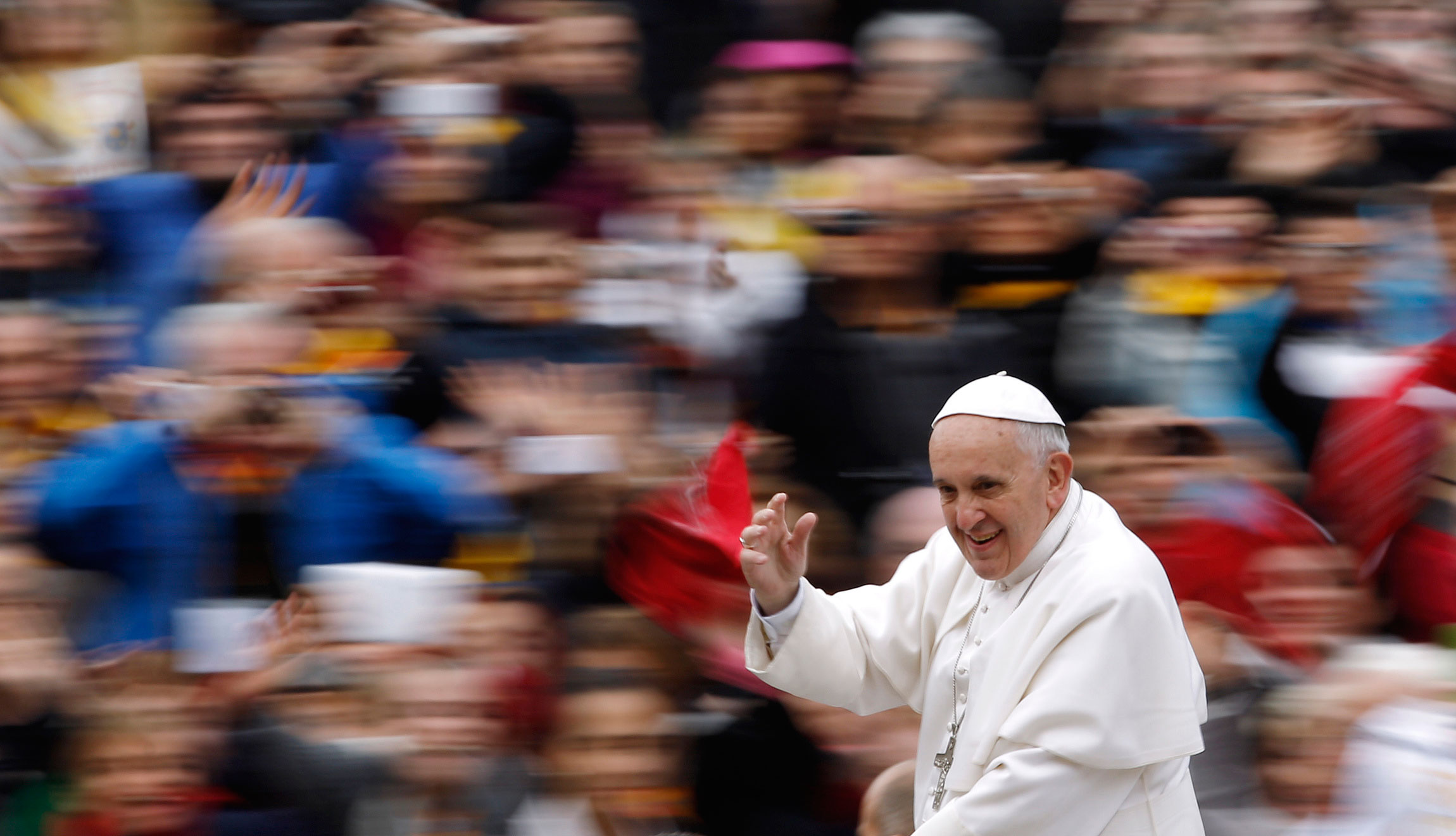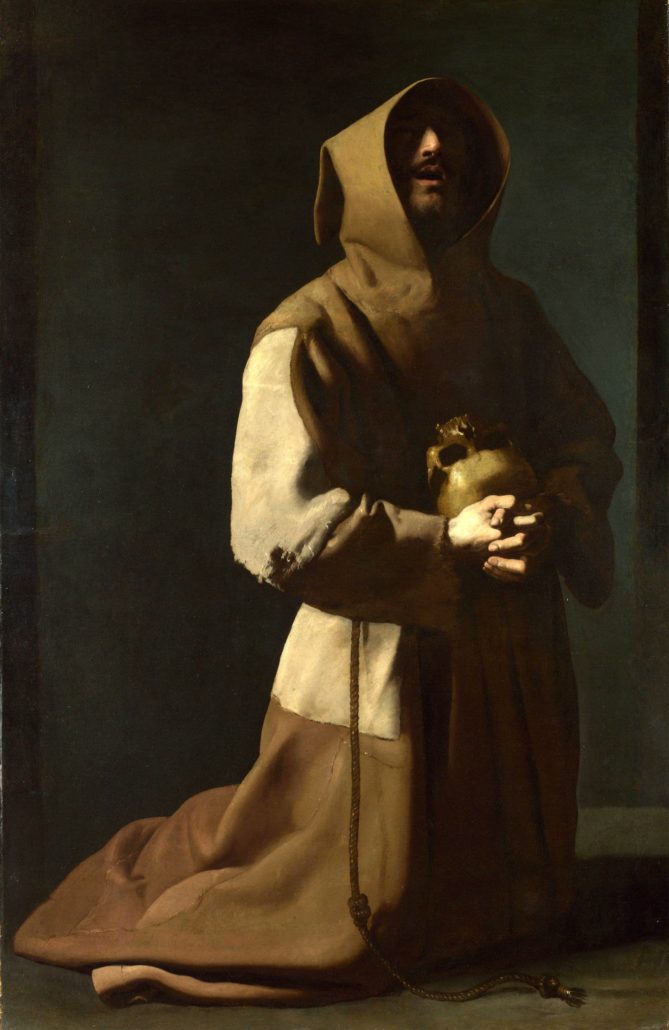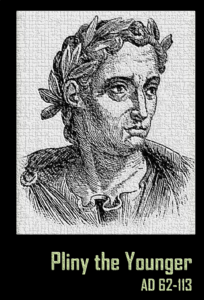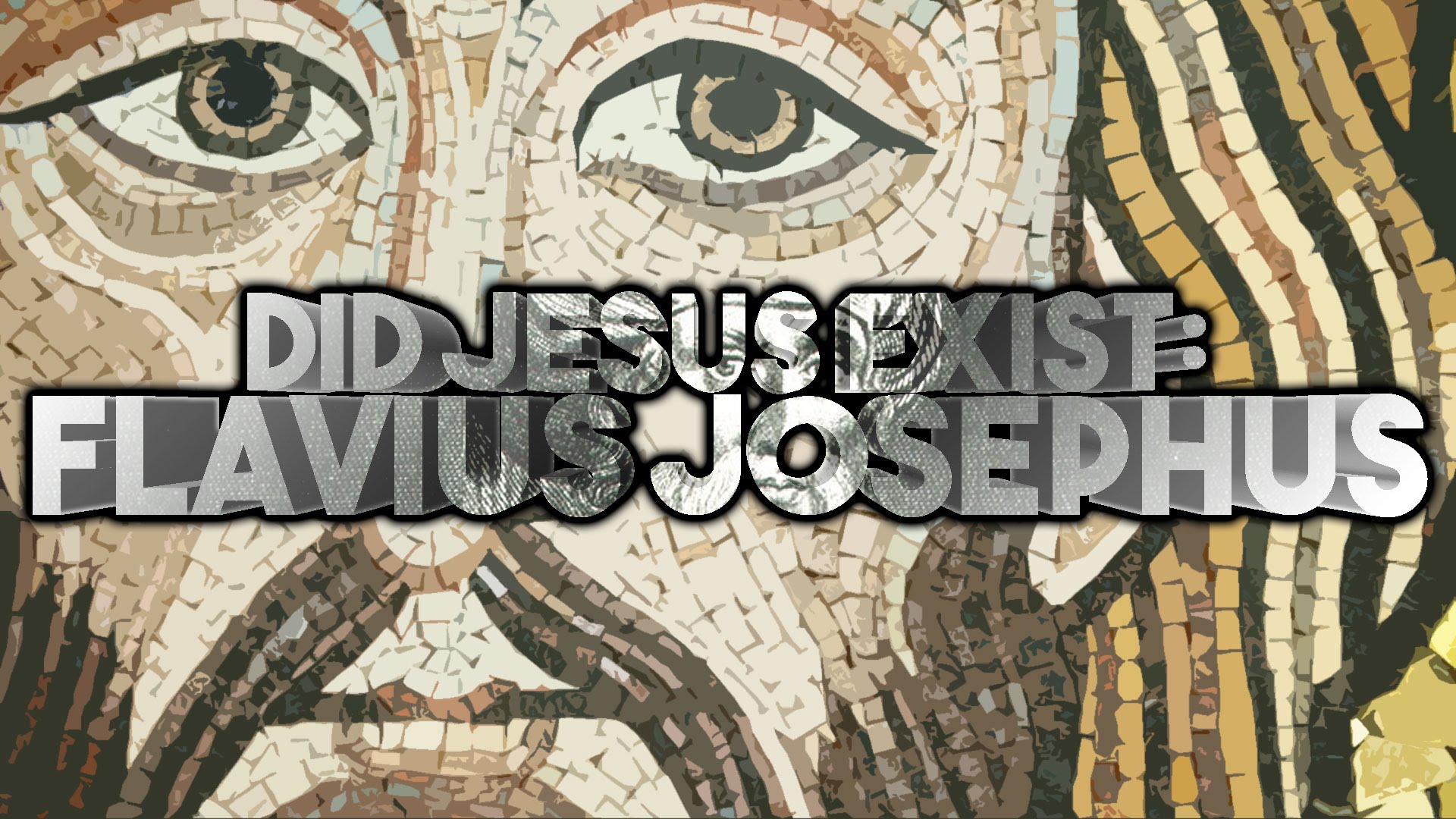
Q. Today, Pope Francis released his message for Lent for 2016. It seems hard to believe, but Lent is just around the corner! Ash Wednesday is February 10, and Easter Sunday is on March 27.
A. Yes, this year, Lent is relatively early. It feels as if we’ve just caught our breath after celebrating Christmas, but here we go again! It’s important for us to start thinking about how we can get the most out of Lent, making it a spiritually fruitful time. And Pope Francis is eager to help us do that – hence, his letter.
Q. What are some of the highlights? Is there anything in particular that jumped out at you?
A. As with all of Pope Francis’ writing, there is a lot of spiritual food for thought, served up with many arresting images and scriptural references. I really encourage everyone to read it for themselves. What really grabbed me upon first reading it was the quote from the Gospel of Matthew that prefaces the letter: “I desire mercy, and not sacrifice” (Mt 9:13). In Lent, we traditionally think of making sacrifices – for example, fasting and abstaining from meat on Ash Wednesday and Good Friday. We also think of good things that we “give up” for Lent for a greater, spiritual purpose, like chocolate or dessert.
But Pope Francis, in this jubilee Year of Mercy, wants us to focus not simply on what we give up, but what we can do this Lent – we can practice the works of mercy, helping others experience the love and forgiveness of God.
Q. How does Pope Francis suggest we go about this?
A. The Holy Father calls us to rediscover what the Church has traditionally called “the corporal and spiritual works of mercy”. Here’s how he puts it in the letter: “These works remind us that faith finds expression in concrete everyday actions meant to help our neighbours in body and spirit: by feeding, visiting, comforting and instructing them. On such things will we be judged.”
Pope Francis also reminds us that these “corporal and spiritual works of mercy can never be separated”, and we must practice both if we are to avoid Hell and attain Heaven, which is God’s desire for us:
“In the corporal works of mercy we touch the flesh of Christ in our brothers and sisters who need to be fed, clothed, sheltered, visited; in the spiritual works of mercy – counsel, instruction, forgiveness, admonishment and prayer – we touch more directly our own sinfulness. The corporal and spiritual works of mercy must never be separated. By touching the flesh of the crucified Jesus in the suffering, sinners can receive the gift of realizing that they too are poor and in need. By taking this path, the “proud”, the “powerful” and the “wealthy” spoken of in the Magnificat can also be embraced and undeservedly loved by the crucified Lord who died and rose for them. This love alone is the answer to that yearning for infinite happiness and love that we think we can satisfy with the idols of knowledge, power and riches. Yet the danger always remains that by a constant refusal to open the doors of their hearts to Christ who knocks on them in the poor, the proud, rich and powerful will end up condemning themselves and plunging into the eternal abyss of solitude which is Hell. The pointed words of Abraham apply to them and to all of us: “They have Moses and the prophets; let them hear them” (Lk 16:29). Such attentive listening will best prepare us to celebrate the final victory over sin and death of the Bridegroom, now risen, who desires to purify his Betrothed in expectation of his coming.
Let us not waste this season of Lent, so favourable a time for conversion!”
What do you think? Share your answer in the comments below or on Facebook, Twitter, or LinkedIn.
The official English translation of the entire letter is below:
MESSAGE OF POPE FRANCIS
LENT 2016
“I desire mercy, and not sacrifice” (Mt 9:13).
The works of mercy on the road of the Jubilee
1. Mary, the image of a Church which evangelizes because she is evangelized
In the Bull of Indiction of the Extraordinary Jubilee of Mercy, I asked that “the season of Lent in this Jubilee Year be lived more intensely as a privileged moment to celebrate and experience God’s mercy” (Misericordiae Vultus, 17). By calling for an attentive listening to the word of God and encouraging the initiative “24 Hours for the Lord”, I sought to stress the primacy of prayerful listening to God’s word, especially his prophetic word. The mercy of God is a proclamation made to the world, a proclamation which each Christian is called to experience at first hand. For this reason, during the season of Lent I will send out Missionaries of Mercy as a concrete sign to everyone of God’s closeness and forgiveness.
After receiving the Good News told to her by the Archangel Gabriel, Mary, in her Magnificat, prophetically sings of the mercy whereby God chose her. The Virgin of Nazareth, betrothed to Joseph, thus becomes the perfect icon of the Church which evangelizes, for she was, and continues to be, evangelized by the Holy Spirit, who made her virginal womb fruitful. In the prophetic tradition, mercy is strictly related – even on the etymological level – to the maternal womb (rahamim) and to a generous, faithful and compassionate goodness (hesed) shown within marriage and family relationships.
2. God’s covenant with humanity: a history of mercy
The mystery of divine mercy is revealed in the history of the covenant between God and his people Israel. God shows himself ever rich in mercy, ever ready to treat his people with deep tenderness and compassion, especially at those tragic moments when infidelity ruptures the bond of the covenant, which then needs to be ratified more firmly in justice and truth. Here is a true love story, in which God plays the role of the betrayed father and husband, while Israel plays the unfaithful child and bride. These domestic images – as in the case of Hosea (cf. Hos 1-2) – show to what extent God wishes to bind himself to his people.
This love story culminates in the incarnation of God’s Son. In Christ, the Father pours forth his boundless mercy even to making him “mercy incarnate” (Misericordiae Vultus, 8). As a man, Jesus of Nazareth is a true son of Israel; he embodies that perfect hearing required of every Jew by the Shema, which today too is the heart of God’s covenant with Israel: “Hear, O Israel: The Lord our God is one Lord; and you shall love the Lord your God with all your heart, and with all your soul, and with all your might” (Dt 6:4-5). As the Son of God, he is the Bridegroom who does everything to win over the love of his bride, to whom he is bound by an unconditional love which becomes visible in the eternal wedding feast.
This is the very heart of the apostolic kerygma, in which divine mercy holds a central and fundamental place. It is “the beauty of the saving love of God made manifest in Jesus Christ who died and rose from the dead” (Evangelii Gaudium, 36), that first proclamation which “we must hear again and again in different ways, the one which we must announce one way or another throughout the process of catechesis, at every level and moment” (ibid., 164). Mercy “expresses God’s way of reaching out to the sinner, offering him a new chance to look at himself, convert, and believe” (Misericordiae Vultus, 21), thus restoring his relationship with him. In Jesus crucified, God shows his desire to draw near to sinners, however far they may have strayed from him. In this way he hopes to soften the hardened heart of his Bride.
3. The works of mercy
God’s mercy transforms human hearts; it enables us, through the experience of a faithful love, to become merciful in turn. In an ever new miracle, divine mercy shines forth in our lives, inspiring each of us to love our neighbour and to devote ourselves to what the Church’s tradition calls the spiritual and corporal works of mercy. These works remind us that faith finds expression in concrete everyday actions meant to help our neighbours in body and spirit: by feeding, visiting, comforting and instructing them. On such things will we be judged. For this reason, I expressed my hope that “the Christian people may reflect on the corporal and spiritual works of mercy; this will be a way to reawaken our conscience, too often grown dull in the face of poverty, and to enter more deeply into the heart of the Gospel where the poor have a special experience of God’s mercy” (ibid., 15). For in the poor, the flesh of Christ “becomes visible in the flesh of the tortured, the crushed, the scourged, the malnourished, and the exiled… to be acknowledged, touched, and cared for by us” (ibid.). It is the unprecedented and scandalous mystery of the extension in time of the suffering of the Innocent Lamb, the burning bush of gratuitous love. Before this love, we can, like Moses, take off our sandals (cf. Ex 3:5), especially when the poor are our brothers or sisters in Christ who are suffering for their faith.
In the light of this love, which is strong as death (cf. Song 8:6), the real poor are revealed as those who refuse to see themselves as such. They consider themselves rich, but they are actually the poorest of the poor. This is because they are slaves to sin, which leads them to use wealth and power not for the service of God and others, but to stifle within their hearts the profound sense that they too are only poor beggars. The greater their power and wealth, the more this blindness and deception can grow. It can even reach the point of being blind to Lazarus begging at their doorstep (cf. Lk 16:20-21). Lazarus, the poor man, is a figure of Christ, who through the poor pleads for our conversion. As such, he represents the possibility of conversion which God offers us and which we may well fail to see. Such blindness is often accompanied by the proud illusion of our own omnipotence, which reflects in a sinister way the diabolical “you will be like God” (Gen 3:5) which is the root of all sin. This illusion can likewise take social and political forms, as shown by the totalitarian systems of the twentieth century, and, in our own day, by the ideologies of monopolizing thought and technoscience, which would make God irrelevant and reduce man to raw material to be exploited. This illusion can also be seen in the sinful structures linked to a model of false development based on the idolatry of money, which leads to lack of concern for the fate of the poor on the part of wealthier individuals and societies; they close their doors, refusing even to see the poor.
For all of us, then, the season of Lent in this Jubilee Year is a favourable time to overcome our existential alienation by listening to God’s word and by practising the works of mercy. In the corporal works of mercy we touch the flesh of Christ in our brothers and sisters who need to be fed, clothed, sheltered, visited; in the spiritual works of mercy – counsel, instruction, forgiveness, admonishment and prayer – we touch more directly our own sinfulness. The corporal and spiritual works of mercy must never be separated. By touching the flesh of the crucified Jesus in the suffering, sinners can receive the gift of realizing that they too are poor and in need. By taking this path, the “proud”, the “powerful” and the “wealthy” spoken of in the Magnificat can also be embraced and undeservedly loved by the crucified Lord who died and rose for them. This love alone is the answer to that yearning for infinite happiness and love that we think we can satisfy with the idols of knowledge, power and riches. Yet the danger always remains that by a constant refusal to open the doors of their hearts to Christ who knocks on them in the poor, the proud, rich and powerful will end up condemning themselves and plunging into the eternal abyss of solitude which is Hell. The pointed words of Abraham apply to them and to all of us: “They have Moses and the prophets; let them hear them” (Lk 16:29). Such attentive listening will best prepare us to celebrate the final victory over sin and death of the Bridegroom, now risen, who desires to purify his Betrothed in expectation of his coming.
Let us not waste this season of Lent, so favourable a time for conversion! We ask this through the maternal intercession of the Virgin Mary, who, encountering the greatness of God’s mercy freely bestowed upon her, was the first to acknowledge her lowliness (cf. Lk 1:48) and to call herself the Lord’s humble servant (cf. Lk 1:38).
From the Vatican, 4 October 2015
Feast of Saint Francis of Assisi
FRANCISCUS





 Pliny the Younger is another valuable historical source for information on Jesus and the early Church. Pliny was the governor of the Roman province of Bithynia, located in Asia Minor. In the year 112 AD, he wrote to the Emperor Trajan, asking how he should deal with those in his region who have been accused of being Christians.
Pliny the Younger is another valuable historical source for information on Jesus and the early Church. Pliny was the governor of the Roman province of Bithynia, located in Asia Minor. In the year 112 AD, he wrote to the Emperor Trajan, asking how he should deal with those in his region who have been accused of being Christians.


